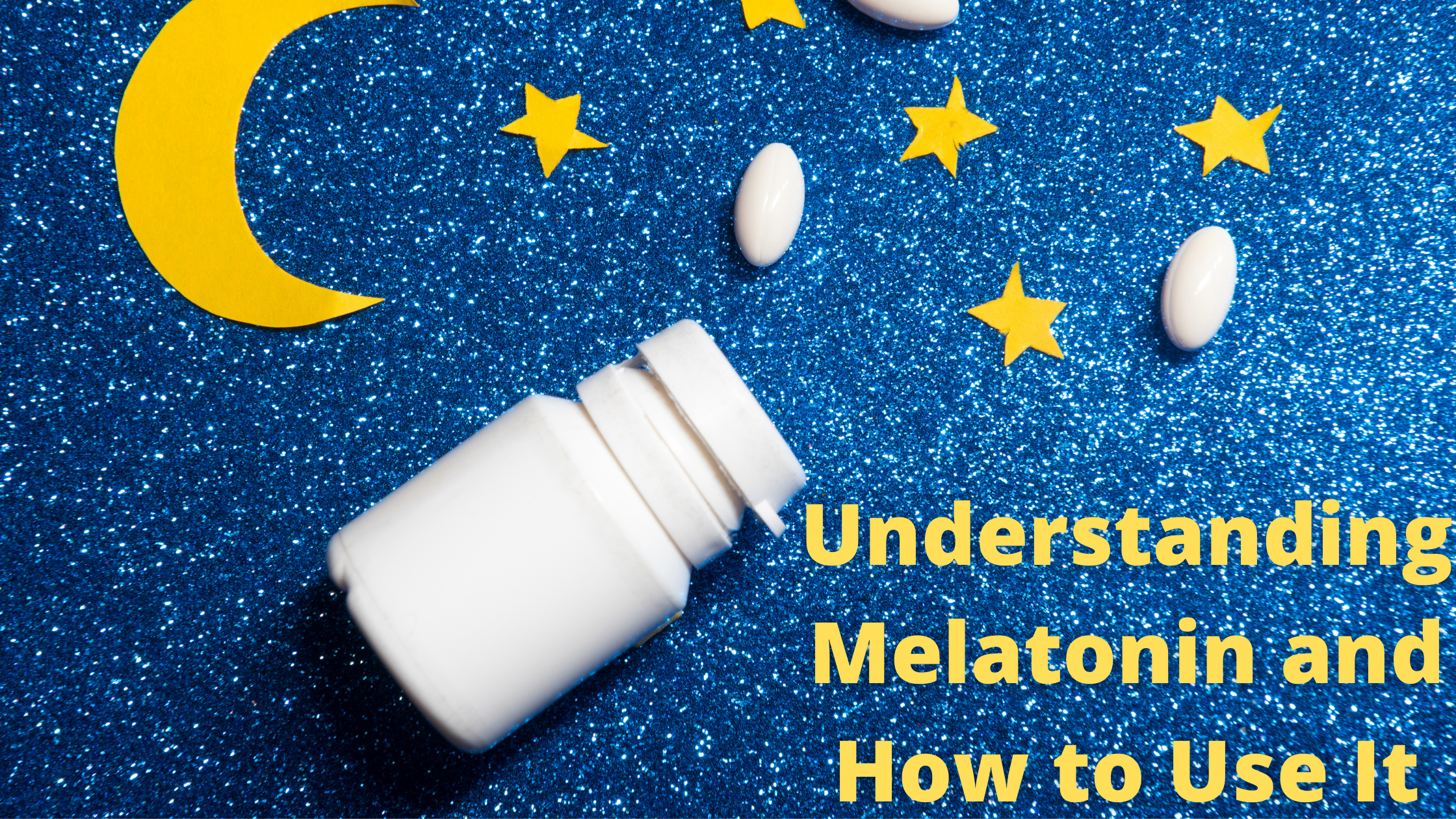
The use of melatonin as a sleep aid has increased substantially, especially during the pandemic. With people's daily schedules being thrown off, or thrown out completely, their sleep took a toll. Our bodies are creatures of habit. They like predictable schedules. They thrive on them. When we go to sleep a wildly varying times everyday and wake up whenever, then we actually are throwing off our body's ability to create a consistent schedule to help us get good sleep.
While the rising use of melatonin is certainly unsettling, the most unsettling thing is the fact that we may be using melatonin all wrong. Melatonin is not a little tablet that serves as a fix for everything. It may be an adjunct to an already established sleep schedule. Continue reading to find out some concerns about using melatonin and important considerations.
What is melatonin?
Melatonin is a hormone that is produced by the pineal gland in the brain. It signals to the body when it is time to go to bed and begins initiating physiological changes that can promote sleep. This can include reducing heart rate, lowering blood pressure and temperature, and slowing down digestive actions. Anything required for you to get a good night sleep is initiated by the release of melatonin.
Its release is controlled by light. Light hits the retina, a group of cells in the back of the eye, signaling to the brain that it's day time and our bodies need arousing hormone and neurotransmitters, like cortisol, pulsing through our bodies. When that light goes away, as it does in the evening, then that signals to the retina that it's time for bed and we need more relaxing hormones, like melatonin.
What is it used for?
Melatonin can be taken exogenously, or synthetically. There are over-the-counter forms and prescription, but melatonin is generally fairly easy to buy at the grocery store or pharmacy.
It is used for those who have trouble falling asleep to help induce sleepiness. The time it takes for you to fall asleep is called sleep latency. If you have extended sleep latency, then you may just be lying in the bed, waiting for sleep to happen, but it seems to take forever.
Therefore, melatonin sounds like a good fix for this because it may boost the initiation of sleep in your body.
How you may be using it wrong
The use of melatonin is not that simple. It is not a pill that you can take that leads to a direct consequence of going to sleep. Because it is something already produced by your body, taking it exogenously is supposed to be a supplement, something to add the production. It is not supposed to be something that you take and immediately hope to go to sleep.
Melatonin should be taken at the same time every single day. Your circadian rhythm, or sleep-wake cycle, is partly controlled by melatonin. If you take it at different times throughout the day, you could negatively be impacting that because your brain is reliant on a steady schedule. This could actually have the opposite affect and make it harder to go to sleep.
Melatonin should also be used earlier in the evening, a couple of hours before you are going to bed. Natural melatonin production doesn't flood your body and instantaneously make you go to sleep. Therefore, you shouldn't expect that to happen when you are taking it exogenously.
Important Considerations
While taking melatonin, it's important to understand some potential concerns of taking it before running to the pharmacy for a bottle of your own. Melatonin has some potentially disturbing side effects. It can make you extremely drowsy and groggy into the next day which can be pretty hard to overcome first thing in the morning.
Second, melatonin is unregulated, meaning the companies making them don't have to be accountable for making sure there is a specific amount. Therefore, you may be taking more or less than you need, or a different amount every single day. Make sure to buy from reputable brands who have taken the extra step to receive some sort of approval or accreditation.
Third, you cannot medicate bad sleep hygiene away. If you have bad sleep habits, taking melatonin is not going to make them all go away. You have to make some behavioral changes, along with taking melatonin in order to get the good sleep you need. Start going to bed at the same time every night, which may help you take the melatonin at the same time every night. Make sure your room is dark, cold, and quiet, and remove all sources of blue light that could be disrupting melatonin production in your brain. These include TVs, tablets, phones, anything with and LED screen.
Getting good sleep
If you are having trouble going to sleep, then you have to practice good sleep hygiene. The tips above can help you improve your sleep schedule, and other activities can help induce a sense of relaxation so you can go to sleep.
Meditation, reading, yoga, stretching, talking with family, all of them are things that can help induce a sense of calm from a crazy day. Practicing these activities can help you get your mind ready for bed. If you do them in the same order everyday, then you are training your brain and body for sleep.
If your trouble sleeping may have a more serious, underlying cause, then please click the orange button below to take a free online sleep test and speak with one of our sleep health professionals today.
https://www.washingtonpost.com/wellness/2022/03/25/how-to-use-melatonin-for-sleep/

